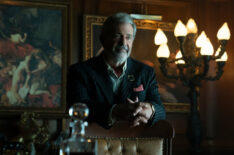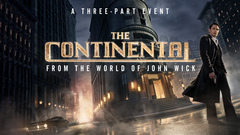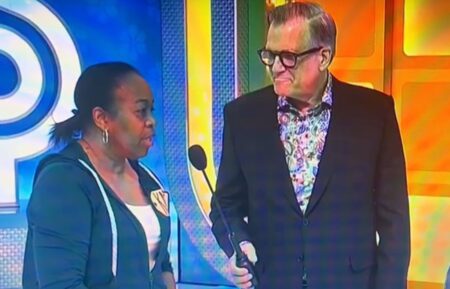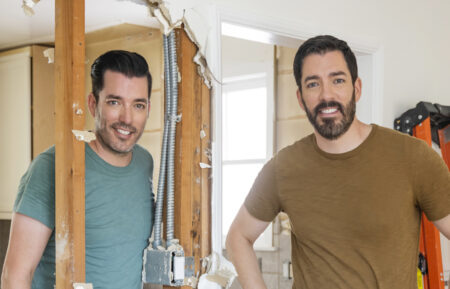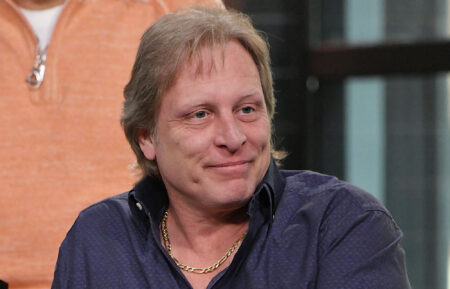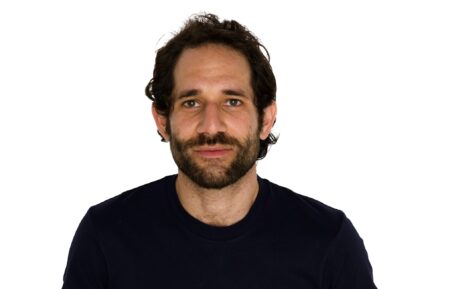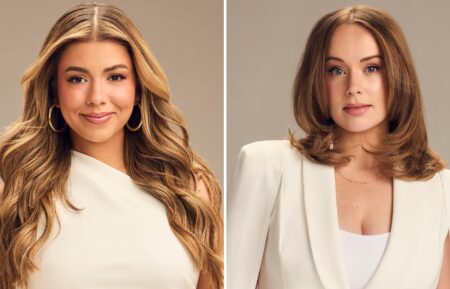‘The Continental’ Director Albert Hughes on Working With Mel Gibson, Winston & Charon’s Backstory, and More
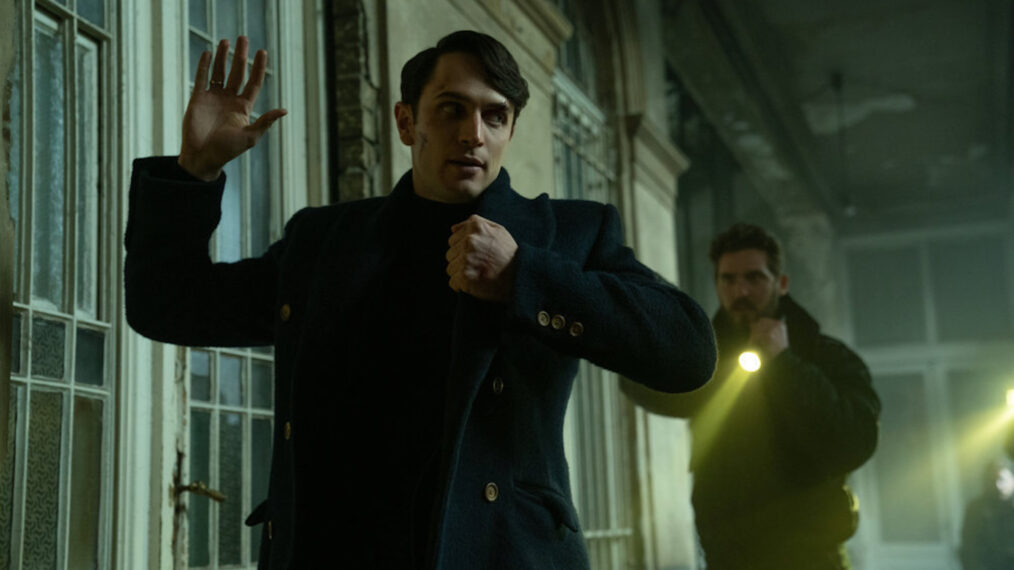
Q&A
The Continental, a 1970s-set prequel to the John Wick action franchise, is a fast-moving, stylish thrill ride. Named for the Wick-verse’s global hotel chain for assassins, it tells the backstory of dashing manager Winston and concierge Charon (played in the movies by Ian McShane and the late Lance Reddick) and how they unite to win the brutal fight to control the New York City location. The three-part series drops in 90-minute installments weekly on Peacock, starting September 22.
We talked to executive producer and director Albert Hughes, who first made his mark 30 years ago with Menace II Society, about tackling a new chapter in a billion-dollar franchise, working with Mel Gibson, and where this twisty tale is headed.
When you read the script, were you happy with how the backstory of Winston and Charon was handled?
Albert Hughes: I thought it was really an interesting take. You have Winston [Colin Woodell] who’s [when we first meet him] pulling off this high-stakes, shrewd con in London, which speaks to the character that you see eventually. He always has an angle. He’s always a step ahead of everybody, playing three-dimensional chess. Then you have this more naive, young teenage Charon [Ayomide Adegun] who just wants a better life and who’s under the influence of a psychotic sociopath, Mel Gibson’s character, Cormac. He’s being corrupted by the stuff he’s seen. Winston comes to tell him none of this is appropriate. It’s like a throwback to movies like 48 Hrs. or The Defiant Ones — the original [1958] movie, not my brother’s [Allen Hughes] documentary. It’s two characters from different backgrounds, different races, that are plunged into this very traumatic situation, reluctantly have to work together, and have to figure it out.
What made you want to get involved with this project?
I didn’t think I wanted to do it because I didn’t want to play in another man or woman’s sandbox. Then I thought about Andor and Tony Gilroy, and Fargo and Noah Hawley and I go, maybe. And I want to have some fun. After Covid and everything everybody’s been through, I just wanted to have fun and escape. John Wick films are escapism. I was able to, for the first time, not be servicing generational trauma or social issues. John Wick kind of kicks that out. You see it when we reference Vietnam, and characters who have been affected by it, but we’re not going heavy handed.
How did you cast newcomer Ayomide Adegun as Charon?
We were almost starting to shoot. Our casting director found this kid in acting school in Wales. He still had one year before he graduated, was still living at home. His mother and father are from Nigeria. So, we see the tape and… Oh my God. We get him and I’m just amazed. His first scene is against Mel Gibson. It’s the first meeting when they drag [Winston] off to the hotel. That’s the first thing we shot. Sometimes with closeups on reaction shots, I’ll have the other actors just talk bulls**t, say something funny. Mel and Collin were improvising, doing everything to make Ayo respond. Finally, Mel says something stunningly hilarious. Ayo cracks a smile. That close-up is in the movie.
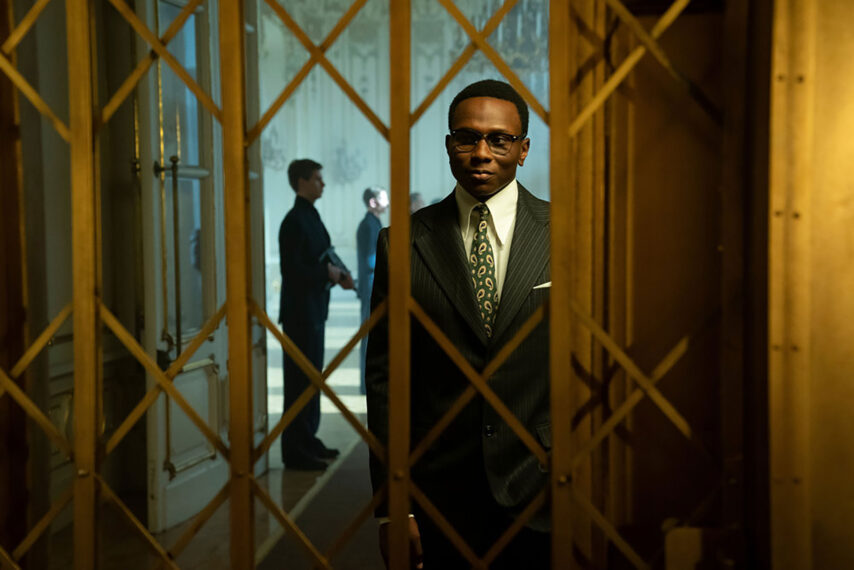
Katalin Vermes/Starz Entertainment
How was working with Mel Gibson?
There’s a separation of what I know about his career behind the camera, what I know about his career in front of the camera, and what we needed for the role. What I’ve heard for the last 40 years about how he is on set, whatever you may think or say about him, he is a pro who is very egalitarian on the set. He treats people with respect. He talks to PAs, he talks to extras. What we all are familiar with from Lethal Weapon and all those other movies is those zingers that he has. Those aren’t in the script. That’s Mel. He starts playing with words. In Episode 3, he plays one word in particular that’s real touchy. If you read into it and you see what he’s playing with, they’re very sensitive issues. I expressed to him, you have to go there, because we’re poking fun at this type of character who is very ignorant [about] where people are from, the crazy uncle we all know.
Right, he has a line about Winston’s brother’s Vietnamese girlfriend Yen [Nhung Kate], who is just one of the many kickass women in this series.
I was raised by a feminist, powerful woman, a single mother who came from welfare and started her own business. It’s inherently in me, but [it was only when] we finished the edit, I noticed that, oh my God, there’s like seven to 10 women who are kicking ass. When you get to the third episode, it’s not the men who take care of business with the bad guys. It’s the women. When I saw [Nhung] Kate’s audition tape, I said, whatever we have to do to get her, get her. My stunt director, Larnell Stovall, who knows [Wick franchise directors] Chad Stahelski and David Leitch and is embedded with [stunt powerhouse company] 87eleven, was like, this woman’s a star!
The Wick action is legendary and there’s plenty of it in this series. Can you share some ways you got creative with the action for TV?
Marina Mazepa [who plays an assassin named Gretel] came from a contortionist background. It’s not revealed until she has a showdown with Yen in Episode 3 what she can do with her body. We showed it to people, and they thought it was VFX. [In another sequence] there was a full-blown car chase shot but if you can’t be at the level of James Bond, what are we doing? It had to be more personal. [So] it’s like, let’s stylize it. Give the audience an impression.
And it’s all set to this incredible ’70s soundtrack which adds to the narrative.
I kept saying the music is one of the characters. The money they put into music would equal a recognizable star actor. My biracial upbringing meant hearing Creedence Clearwater Revival from my mother, and James Brown from my father, and Motown, because I grew up in Detroit. And then TV commercial [jingles] for Lite Brite and Almond Joy give the impression of the ’70s, my formative years, without getting too serious.
Do you have a favorite scene?
There’s a small moment in Episode 3 that nobody else would probably pick as their favorite scene, but it was mine. It was Mel Gibson’s Cormac character. He’s alone now. “One is the Loneliest Number” is playing. It is just a sad, pitiful moment. But I just love that song with this sociopath that’s realizing it all [may be] finally coming to an end.
Can you hint about where the story is headed?
[NYPD Detective] KD’s [Mishel Prada] story is really the heart of the story. Her childhood was affected by something. Winston’s childhood was affected by something. And they come to this crossroads. Winston is a baby rattlesnake; they don’t know their power yet. What he does at the very end of Episode 3 could cost him his life. He makes a split-second decision that Ian McShane’s Winston probably wouldn’t have done. Cormac is playing pretty loosey-goosey with the code, and so is the Adjudicator [Katie McGrath]. She has some ulterior motives.
If the show gets more seasons, what can we look forward to?
Whether or not it has other seasons, it’s an interesting ride to go on. Because what happens now with that hubris? Do you become the same victim of that gilded cage that Cormac became? If you notice in Episode 1, there’s a red bird that lands on the balcony. By Episode 3, you see that red bird return; that’s a symbol nodding to be careful, you can turn into that guy.
The Continental, Fridays, Peacock

